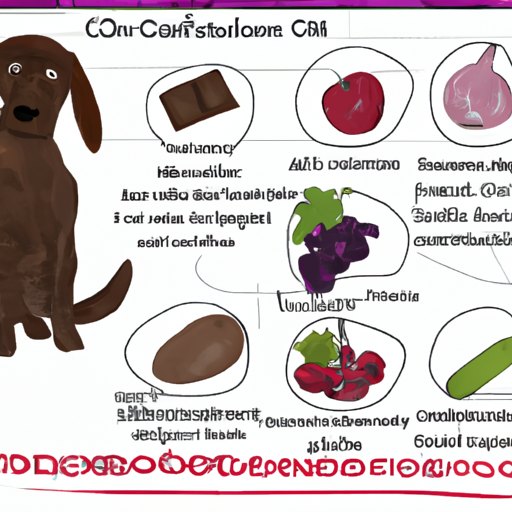Every dog owner knows the joy of sharing life with a furry friend. But when it comes to sharing our favorite foods with our canine companions, there’s much we need to know. With a myriad of potential health hazards lurking in common foods, it’s essential to know what food not to feed dogs. This guide will aid you in understanding which foods are off-limits for your beloved pet.
Table of Contents
- Introduction
- Foods Toxic to Dogs
- Understanding the Risks
- FAQ
Key Takeaways
- Several common foods can be toxic to dogs, including chocolate, grapes, and onions.
- Understanding the risks associated with these foods can help prevent serious health issues.
- Always check with a vet if you’re unsure about feeding a certain food to your dog.
Foods Toxic to Dogs
Chocolate is perhaps the most well-known food toxic to dogs. It contains theobromine and caffeine, which can cause severe health problems in dogs, ranging from vomiting and diarrhea to seizures and death.
Grapes and raisins can lead to acute kidney failure in dogs. Even small amounts can be deadly. No one is entirely sure why these fruits are so toxic, but the effects are well-documented.
Onions, garlic, and chives can cause damage to a dog’s red blood cells, leading to anemia. This includes all forms of these foods, both cooked and raw.
Xylitol, an artificial sweetener found in many sugar-free foods, can lead to rapid insulin release in dogs, causing hypoglycemia (low blood sugar) and potentially leading to liver failure.
Alcohol can cause a myriad of health issues in dogs, including vomiting, diarrhea, difficulty breathing, tremors, and even death.
The list is far from exhaustive. For a more comprehensive list of foods toxic to dogs, check out this handy guide from the American Kennel Club.
Understanding the Risks
It’s not just about the immediate effects. Consuming toxic foods can have long-term health implications for your dog. Chronic illnesses, reduced quality of life, and shortened lifespan are some of the potential risks.
Taking the time to understand these risks can help ensure you’re providing the best care for your canine companion. If you’re ever unsure about a particular food, it’s always best to err on the side of caution and check with your vet.
It’s also worth noting that every dog reacts differently to different foods. Just because one dog can tolerate a certain food doesn’t mean all dogs can. Always monitor your dog after introducing a new food into their diet.
At onetopdog.com, we understand the importance of keeping your pet healthy and happy. Check out our articles on dog nutrition, dog care, and dog health for more useful information.
Frequently Asked Questions
Q: Can dogs eat any human food?
A: Some human foods are safe for dogs, such as lean meats, some fruits, and vegetables. However, it’s always best to check with your vet before introducing any new food into your dog’s diet.
Q: What should I do if my dog eats a toxic food?
A: If your dog consumes a toxic food, contact your vet immediately. If possible, provide them with information about what and how much your dog ate, and any symptoms you’ve noticed.
Q: Are there any safe alternatives to these toxic foods?
A: Yes, there are many safe alternatives to these foods. For example, instead of giving your dog chocolate, try a dog-friendly treat. Instead of grapes, try slices of apple (just make sure to remove the seeds first).
Remember, when it comes to feeding your dog, it’s always better to be safe than sorry. Your furry friend is counting on you to make the best choices for their health. Stay informed, stay vigilant, and your dog will thank you.



